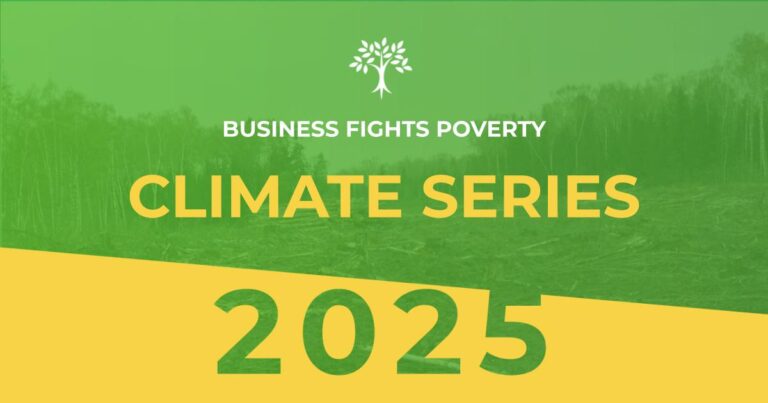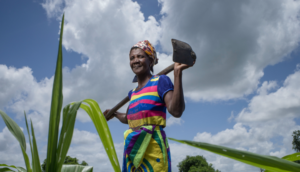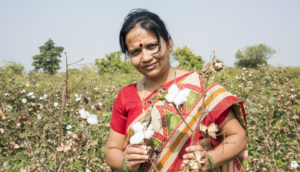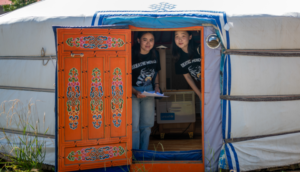Across low- and middle-income countries, gender and economic inequalities are fuelling hunger and deepening the impacts of climate change. As climate shocks intensify, inequalities are magnified, keeping families trapped in cycles of hunger and poverty.
Diageo and CARE set out to address these challenges together in Tanzania – demonstrating that empowering women farmers and people with disabilities is vital not only for equality, but also for the resilience and strength of corporate supply chains.
Climate and gender
In sub-Saharan Africa, climate change is causing more frequent floods, prolonged droughts, and unpredictable rainfall. At the same time, entrenched gender inequalities continue to hold back women farmers, who make up between 40–60% of the agricultural labour force in the region. For global companies sourcing agricultural commodities, these two issues are deeply intertwined and tackling them together is essential.
At Diageo, we are committed to addressing the intersecting challenges of gender inequality and climate change. We know that strong communities has direct business benefits.
In 2024, in Singida, Tanzania, Diageo and CARE launched a flagship pilot programme to increase women’s access to the project’s village-based Farmers Hub network, which was created to improve income diversification for smallholder farmers and strengthen supply chains. As part of this, we gathered data to explore how climate change was impacting both men and women. The findings offer valuable lessons for agribusinesses working in similar, local contexts.
Gender Equality Matters for Climate Resilience
In rural Tanzania, 98% of women engage in agriculture as an economic activity, compared to 73% of men. (https://resourceequity.org/record/2611-gender-and-agriculture-in-tanzania/) But women farmers face systemic barriers that limit their ability to adapt to climate change. They are less likely to have access to land, financial services and loans, agricultural inputs and technical training for climate-smart practices. And women are carrying out the bulk of unpaid domestic work too, averaging 4.5 hours a day compared with just over two hours for men. They are also more vulnerable to the impacts of climate disasters, with climate change increasing risks of injury, displacement and gender-based violence.
Failing to address these barriers has direct consequences for businesses too. Excluding women from supply chains reduces yields and productivity. It is estimated that bringing women farmers’ yields up to those of men in the global south would increase overall agricultural output by 2.5–4%.
The study also showed that when women were included equally in decision-making, there were measurable social benefits: reports of gender-based violence in participating communities fell dramatically, and household collaboration increased.
Women farmers are leaders in finding solutions to mitigate the impact of climate change – they are the experts on what is needed. It is vital that barriers to their participation are broken down.
How Climate Resilience and Gender Equality Strengthen Business
Implementing solutions that deliver social and economic benefits for all is smart business: it builds community resilience and creates growth. We include men and women together in all we do, holding community dialogues to examine the social norms that restrict women’s access to resources and opportunities. We know that women are powerful leaders and entrepreneurs who need to be given access to the right spaces and tools to thrive and contribute to our economic system.
On top of integrating a gender lens into everything we do, our ambition is now to support farmers working with the new parameters created by climate change and to adapt their ways of producing. This makes them less vulnerable to climate shocks and as a result, Diageo gains supply chain security, and communities gain increased skills, resources and livelihoods.
Case Study
Ramadhan Mohamed, a farmer from Iguguno village, explained how the pilot changed attitudes in his household:
“Initially I did not allow my wife to engage in any entrepreneurial activities, believing that a woman’s role was solely to stay at home and serve her husband; however after CARE’s training on women’s engagement in income-generating activities I provided my wife a capital of 50,000 TZs (approx. £15) that she has used as capital to buy vegetables together with cooking snacks to sell them. As a result, our household income has increased significantly and dependence on me has decreased.”
Practical Actions for Businesses
Diageo’s work with CARE in Tanzania highlighted practical steps agribusinesses can take to address gender inequality and climate change together:
Use data to guide decisions: Tools such as Climate Vulnerability and Capacity Analysis can help companies understand local vulnerabilities and capacities.
Target women explicitly: Deliver inclusive agricultural training, support Village Savings and Loans Associations (VSLAs), and ensure women have equal access to assets and extension services.
Invest in climate adaptation: Support climate-smart agriculture, water management schemes and locally led adaptation initiatives such as planting drought-resistant crop varieties. Adaptation is vital as although smallholder farms account for only 12% of the world’s farmland, they provide 80% of the food produced in Asia and Africa. (https://link.springer.com/content/pdf/10.1007/978-3-030-42148-9.pdf)
Address social norms: Community dialogues and Gender and Power Analyses can shift attitudes and enable women’s meaningful participation in decision-making.
Collaborate for scale: Partnerships between businesses, NGOs, local governments and financial institutions can pool resources and share best practice to support farmers at scale.
Collaborating with Local Communities: The Way Forward
Many companies are investing in reducing carbon emissions, but fewer are supporting climate adaptation in their supply chains, and fewer still are integrating gender equality into those efforts. The experience in Singida shows that targeted, inclusive actions can create tangible benefits for communities and businesses alike.
Building resilient agricultural systems means ensuring women farmers have the resources, opportunities and decision-making power to adapt to a changing climate. For Diageo, working with partners like CARE is central to this effort.
We urge other businesses to join us in tackling gender inequality and climate change together – not only because resilient supply chains depend on it, but because it’s the right thing to do.










